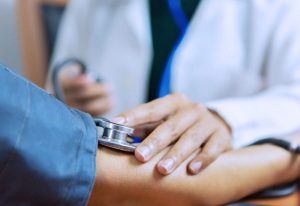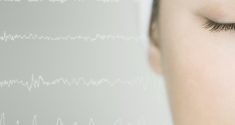In the world of medical science, naps can be a surprisingly controversial topic. For some health professionals, napping is thought to be a smart strategy for improving mental health, cognitive performance and more. Other medical researchers point to the variety of elevated health risks associated with frequent napping, suggesting the best course of action may be to focus on improving sleep quality at night to avoid the need for napping during the day.
New research, published in Hypertension, a peer-reviewed journal published by the American Heart Association, points to links between frequent daytime napping and an increased risk of experiencing high blood pressure and stroke.
High Blood Pressure and Stroke May Be Linked to Frequent Napping
 The new study is the first of its nature, bringing together both a longer-term type of study subject observational analysis and the Mendelian randomization technique, which utilizes genetic variants and the information revealed by those variants via overall study results to offer deeper insights into causation potentials and probability. This helps to mitigate some of the causation pitfall potentials associated with observational studies, offering a more accurate analysis and understanding of study results.
The new study is the first of its nature, bringing together both a longer-term type of study subject observational analysis and the Mendelian randomization technique, which utilizes genetic variants and the information revealed by those variants via overall study results to offer deeper insights into causation potentials and probability. This helps to mitigate some of the causation pitfall potentials associated with observational studies, offering a more accurate analysis and understanding of study results.
This study involved 358,451 individuals without high blood pressure or stroke in their medical history between 2006 and 2010, using data from UK Biobank, along with their follow up reports which, on average, were filed about 11 years after that initial time period. Using that initial data and the follow up reports, which included those that did eventually develop high blood pressure or stroke, the researchers looked to see if there was a link between how often people napped during the day and the likelihood of high blood pressure or stroke.
After dividing their study subjects into groups based upon the frequency of their napping, the researchers found that those who usually napped during the day were 12 percent more likely to develop high blood pressure than those that never napped. The group that usually napped were also 24 percent more likely to have a stroke than the non-nappers.
Of those subjects under 60 years of age, usual nappers had a 20 percent increase in their high blood pressure risk than those that didn’t nap during the day. Napping daily over 60 years of age carried less of a blood pressure risk, increasing that risk by 10 percent. Shockingly, using the Mendelian randomization technique, researchers found that those that changed their napping pattern, such as going from never napping to sometimes or usually napping, could experience as much as a 40 percent increase in their high blood pressure risk.
According to sleep researcher Michael A. Grandner — who, while not one of the researchers involved with the study, did help write the American Heart Association’s sleep guidelines — it isn’t the napping per se that is the risk, but rather what that frequent napping may indicate about nighttime sleep quality and overall health. Feeling the urge to nap during the day may be an indication of insufficient sleep or poor-quality sleep at night, an underlying health problem or a sleep disorder such as sleep apnea. The relationship between good sleep and good health, including heart health, is well established.
Napping Can Impact Nighttime Sleep
One of the researchers involved with the study, Dr. E. Wang of Xiangya Hospital Central South University, suggests limiting daytime naps to 15 to 30 minutes, if napping is necessary. As a napping guideline, that is pretty standard advice, with many sleep experts pointing out that longer naps, particularly later in the day, can interfere with sleep timing and quality at night.
Chronically disrupted, insufficient or poor-quality sleep can lead to circadian rhythm disruption and both – chronically poor sleep and chronic circadian rhythm disruption – are well established contributors to a higher risk of numerous diseases and chronic health conditions, including cardiovascular diseases, type 2 diabetes, obesity and some cancers.

Better Nighttime Sleep Helps Protect Heart Health
While researchers are certainly continuing to learn about the mechanisms involved in the links between sleep and heart health, it has consistently been demonstrated over numerous studies and significant time that better nighttime sleep can help protect heart health. Insufficient and poor-quality sleep, both of which an overwhelming urge to nap can be a symptom of, can contribute to a higher risk of developing high blood pressure, stroke and poor heart health. Take steps today to sleep better at night — your heart will thank you.







